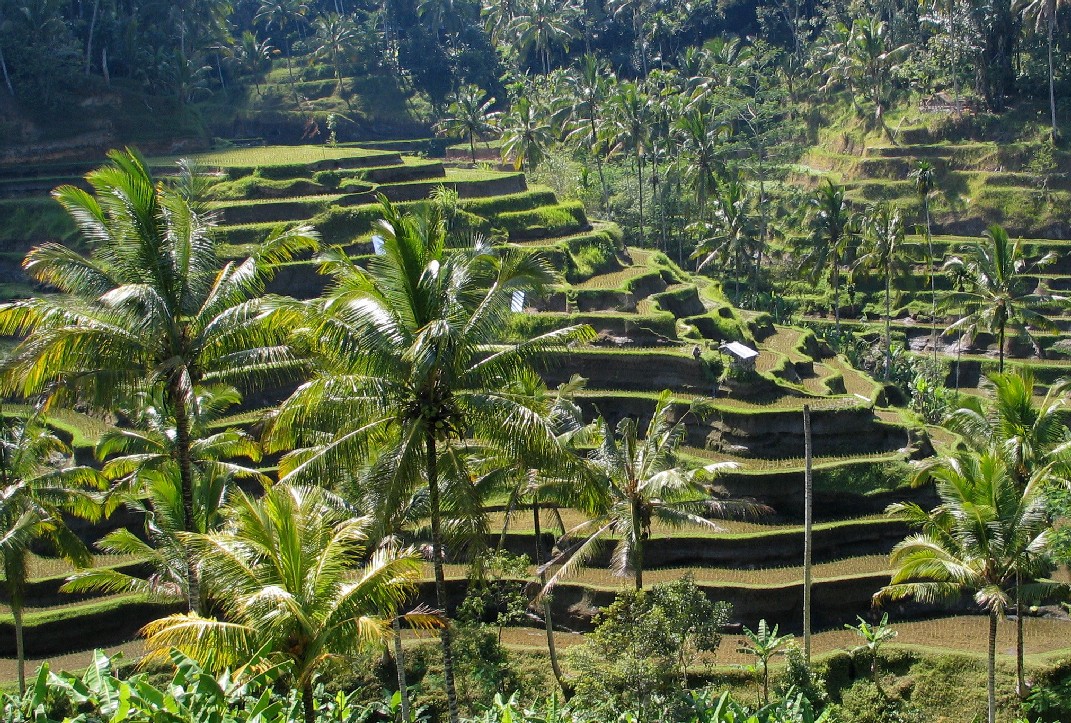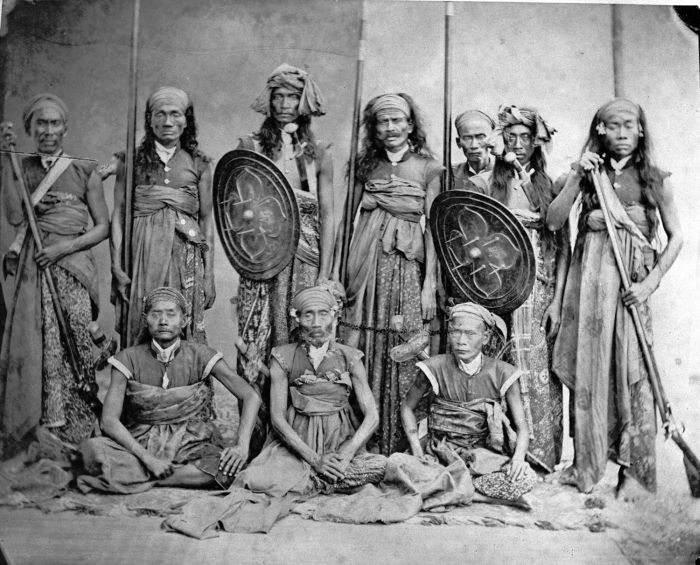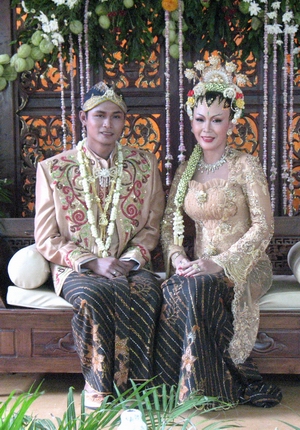|
Punggawa
Punggawa is a title for a traditional local administrator, used in various parts of Indonesia. In Bali and by extension Lombok, the punggawa held the function of a hereditary vassal lord of a district, subservient to the raja. The term originally applied to the northern kingdom of Buleleng, the southern district chiefs being known as ''manca'' or ''manca agung''. With the Dutch conquest of Bali in 1906-1908, the term was applied by colonial administration to the entire island. Henk Schulte Nordholt, ''The Spell of Power; A History of Balinese Politics, 1650–1940''. Leiden 1996, pp. 145–6, 219. On Sulawesi, the term was used for chiefs serving under a major lord, in the form of ''pongawa''. In Javanese culture the punggawa is a court official in shadow plays (wayang , also known as ( jv, ꦮꦪꦁ, translit=wayang), is a traditional form of puppet theatre play originating from the Indonesian island of Java. refers to the entire dramatic show. Sometimes the leather puppet i ... [...More Info...] [...Related Items...] OR: [Wikipedia] [Google] [Baidu] |
Indonesia
Indonesia, officially the Republic of Indonesia, is a country in Southeast Asia and Oceania between the Indian and Pacific oceans. It consists of over 17,000 islands, including Sumatra, Java, Sulawesi, and parts of Borneo and New Guinea. Indonesia is the world's largest archipelagic state and the 14th-largest country by area, at . With over 275 million people, Indonesia is the world's fourth-most populous country and the most populous Muslim-majority country. Java, the world's most populous island, is home to more than half of the country's population. Indonesia is a presidential republic with an elected legislature. It has 38 provinces, of which nine have special status. The country's capital, Jakarta, is the world's second-most populous urban area. Indonesia shares land borders with Papua New Guinea, East Timor, and the eastern part of Malaysia, as well as maritime borders with Singapore, Vietnam, Thailand, the Philippines, Australia, Palau, and India ... [...More Info...] [...Related Items...] OR: [Wikipedia] [Google] [Baidu] |
Bali
Bali () is a province of Indonesia and the westernmost of the Lesser Sunda Islands. East of Java and west of Lombok, the province includes the island of Bali and a few smaller neighbouring islands, notably Nusa Penida, Nusa Lembongan, and Nusa Ceningan to the southeast. The provincial capital, Denpasar, is the most populous city in the Lesser Sunda Islands and the second-largest, after Makassar, in Eastern Indonesia. The upland town of Ubud in Greater Denpasar is considered Bali's cultural centre. The province is Indonesia's main tourist destination, with a significant rise in tourism since the 1980s. Tourism-related business makes up 80% of its economy. Bali is the only Hindu-majority province in Indonesia, with 86.9% of the population adhering to Balinese Hinduism. It is renowned for its highly developed arts, including traditional and modern dance, sculpture, painting, leather, metalworking, and music. The Indonesian International Film Festival is held every year in Bal ... [...More Info...] [...Related Items...] OR: [Wikipedia] [Google] [Baidu] |
Lombok
Lombok is an island in West Nusa Tenggara province, Indonesia. It forms part of the chain of the Lesser Sunda Islands, with the Lombok Strait separating it from Bali to the west and the Alas Strait between it and Sumbawa to the east. It is roughly circular, with a "tail" ( Sekotong Peninsula) to the southwest, about across and a total area of about including smaller offshore islands. The provincial capital and largest city on the island is Mataram. Orang Lombok is some what similar in size and density, and shares some cultural heritage with the neighboring island of Bali to the west. However, it is administratively part of West Nusa Tenggara, along with the larger and more sparsely populated island of Sumbawa to the east. Lombok is surrounded by a number of smaller islands locally called Gili. The island was home to some 3,168,692 Indonesians as recorded in the decennial 2010 censusBiro Pusat Statistik, Jakarta, 2011. and 3,758,631 in the 2020 Census;Badan Pusat Statistik, ... [...More Info...] [...Related Items...] OR: [Wikipedia] [Google] [Baidu] |
Raja
''Raja'' (; from , IAST ') is a royal title used for South Asian monarchs. The title is equivalent to king or princely ruler in South Asia and Southeast Asia. The title has a long history in South Asia and Southeast Asia, being attested from the Rigveda, where a ' is a ruler, see for example the ', the "Battle of Ten Kings". Raja-ruled Indian states While most of the Indian salute states (those granted a gun salute by the British Crown) were ruled by a Maharaja (or variation; some promoted from an earlier Raja- or equivalent style), even exclusively from 13 guns up, a number had Rajas: ; Hereditary salutes of 11-guns : * the Raja of Pindrawal * the Raja of Morni * the Raja of Rajouri * the Raja of Ali Rajpur * the Raja of Bilaspur * the Raja of Chamba * the Raja of Faridkot * the Raja of Jhabua * the Raja of Mandi * the Raja of Manipur * the Raja of Narsinghgarh * the Raja of Pudukkottai * the Raja of Rajgarh * the Raja of Sangli * the Raja of Sailana * the Raj ... [...More Info...] [...Related Items...] OR: [Wikipedia] [Google] [Baidu] |
Buleleng
Buleleng ( ban, ᬓᬩᬸᬧᬢᬾᬦ᭄ᬩᬸᬮᭂᬮᭂᬂ, Kabupatén Buléléng) is a regency (''kabupaten'') of Bali, Indonesia. It has an area of 1,365.88 km2 and population of 624,125 at the 2010 census and 791,910 at the 2020 census. Its regency seat is at the town of Singaraja. Buleleng was founded as a kingdom by Gusti Panji Sakti, who ruled c. 1660-c. 1700. He is commemorated as a heroic ancestor-figure who expanded the power of Buleleng to Blambangan on East Java. The kingdom was weakened during its successors, and fell under the suzerainty of the neighbouring Karangasem kingdom in the second half of the 18th century. It was headed by an autonomous branch of the Karangasem Dynasty in 1806–1849. The Dutch attacked Buleleng in 1846, 1848 and 1849, and defeated it on the last occasion. Buleleng was incorporated in the Dutch colonial system and lost its autonomy in 1882. In 1929 a descendant of Gusti Panji Sakti, the renowned scholar Gusti Putu Jelantik, was ap ... [...More Info...] [...Related Items...] OR: [Wikipedia] [Google] [Baidu] |
Henk Schulte Nordholt
H.G.C. "Henk" Schulte Nordholt (born 13 June 1953, in De Bilt) is head of research at KITLV and KITLV professor of Indonesian History at Leiden University. His focus is on Southeast Asian history, contemporary politics in Indonesia, political violence, Balinese studies and the anthropology of colonialism. He is chairman of the board of the International Institute of Asian Studies (IIAS) and Secretary of the European Association of Southeast Asian Studies (EuroSEAS).Henk Schulte Nordholt Researchers, KITLV Nordholt graduated with a degree in history from the VU University in in 1980. He earned his PhD in social ... [...More Info...] [...Related Items...] OR: [Wikipedia] [Google] [Baidu] |
Sulawesi
Sulawesi (), also known as Celebes (), is an island in Indonesia. One of the four Greater Sunda Islands, and the world's eleventh-largest island, it is situated east of Borneo, west of the Maluku Islands, and south of Mindanao and the Sulu Archipelago. Within Indonesia, only Sumatra, Borneo, and New Guinea, Papua are larger in territory, and only Java and Sumatra have larger populations. The landmass of Sulawesi includes four peninsulas: the northern Minahassa Peninsula, Minahasa Peninsula, the East Peninsula, Sulawesi, East Peninsula, the South Peninsula, Sulawesi, South Peninsula, and the Southeast Peninsula, Sulawesi, Southeast Peninsula. Three gulfs separate these peninsulas: the Gulf of Tomini between the northern Minahasa and East peninsulas, the Tolo Gulf between the East and Southeast peninsulas, and the Bone Gulf between the South and Southeast peninsulas. The Strait of Makassar runs along the western side of the island and separates the island from Borneo. Etymology ... [...More Info...] [...Related Items...] OR: [Wikipedia] [Google] [Baidu] |
Javanese People
The Javanese ( id, Orang Jawa; jv, ꦮꦺꦴꦁꦗꦮ, ''Wong Jawa'' ; , ''Tiyang Jawi'' ) are an ethnic group native to the central and eastern part of the Indonesian island of Java. With approximately 100 million people, Javanese people are the largest ethnic group in Indonesia and the whole Southeast Asia in general. Their native language is Javanese, it is the largest of the Austronesian languages in number of native speakers and also the largest regional language in Southeast Asia. The Javanese as the largest ethnic group in the region have dominated the historical, social, and political landscape in the past as well as in modern Indonesia and Southeast Asia. There are significant numbers of Javanese diaspora outside of central and eastern Java regions, including the other provinces of Indonesia, and also in another countries such as Suriname, Singapore, Malaysia, Egypt, Saudi Arabia, South Africa, Sri Lanka, Yemen and the Netherlands. The Javanese ethnic group h ... [...More Info...] [...Related Items...] OR: [Wikipedia] [Google] [Baidu] |
Wayang
, also known as ( jv, ꦮꦪꦁ, translit=wayang), is a traditional form of puppet theatre play originating from the Indonesian island of Java. refers to the entire dramatic show. Sometimes the leather puppet itself is referred to as . Performances of wayang puppet theatre are accompanied by a ''gamelan'' orchestra in Java, and by '' gender wayang'' in Bali. The dramatic stories depict mythologies, such as episodes from the Hindu epics the ''Ramayana'' and the ''Mahabharata'', as well as local adaptations of cultural legends. Traditionally, a is played out in a ritualized midnight-to-dawn show by a ''dalang'', an artist and spiritual leader; people watch the show from both sides of the screen. performances are still very popular among Indonesians, especially in the islands of Java and Bali. performances are usually held at certain rituals, certain ceremonies, certain events, and even tourist attractions. In ritual contexts, puppet shows are used for prayer rituals (held in ... [...More Info...] [...Related Items...] OR: [Wikipedia] [Google] [Baidu] |






